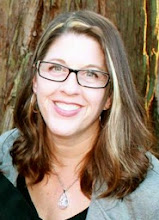
One of the first questions that people ask me is where I got the idea to write Dirty Little Secrets. The answer is simple - a magazine article on people who had grown up in hoarded homes. The second questions is usually: Did you grow up in a house like that? And the answer to that one is also simple. No.
While I have had some experience with hoarding issues, my house was always neat and clean. Except maybe my room in high school. My mom used to walk in there and ask where I kept my bed, but that's teenagers for you.
Way back when we were subbing the manuscript for DLS, one editor at a big publishing house was interested, but ultimately passed because she thought writing about hoarding might come off as exploitative. Honestly, it was the first time I thought about it that way, but it's been in the back of my mind ever since. Is writing about "issues" when you don't have them yourself exploitative? Is writing about anorexia or drug use or suicide exploitative if you aren't anorexic/drug addicted/suicidal? How about writing about vampires if you aren't one?
Unfortunately, there isn't really an easy answer. As much as I hate to admit it, there is a bit of exploitation in a lot of what we do. I think part of the attraction of Hoarders on A&E is that of voyeurism - how could people possibly live that way? In the backs of our minds, we feel a little creepy sitting back and watching people paw through their piles of junk trying to justify why they need to keep the 20 year old can of baked beans. People often ask me what I think of the show and as long as the participants go into it with their eyes open, it does shine a light on a disorder that nobody has talked about until now (for the record, I think they should keep minors off the show). I think that's healthy. But is it exploitative? Do they pick the worst, most disgusting, least empathetic characters sometimes just to get ratings? Sure.
The people I worry about reading DLS the most are people who have hoarding in their lives. I did a lot of work with several people who grew up in hoarded homes and they did a great job helping me get the details right. I've had several people who have lived with hoarders write me and tell me what an emotional read it was for them. DLS does not have a conventionally happy ending. There's very little understanding or revelation at the end. Lucy does not come to terms with her mother's disorder in a mere 24 hours, just like the participants of Hoarders aren't cured of the disorder once their houses have been cleaned in two days. The ending is shocking and real and perfect for her particular story. It may also upset some people in the hoarding community.
There are two definitions for the word exploit. One is simply to use something and one is to use it in a cruel or unjust manner. I didn't set out to negatively exploit people with a particular mental disorder. I saw it as a story about something that at the time was deeply underground. Nobody had written YA fiction about hoarding before, and to me that was the best reason in the world to write the book.
While I hope that people read DLS and enjoy it for the characters and the story, the best outcome for me would be to get people talking about their own difficult living situations. I'd love for the book to be a jumping off point for discussions both within the family and in school situations about all kinds of mental disorders.
In that way, I guess I did exploit hoarding for my own purposes. But I did it for all the right reasons.
On this date: In 1986, the Challenger exploded.














